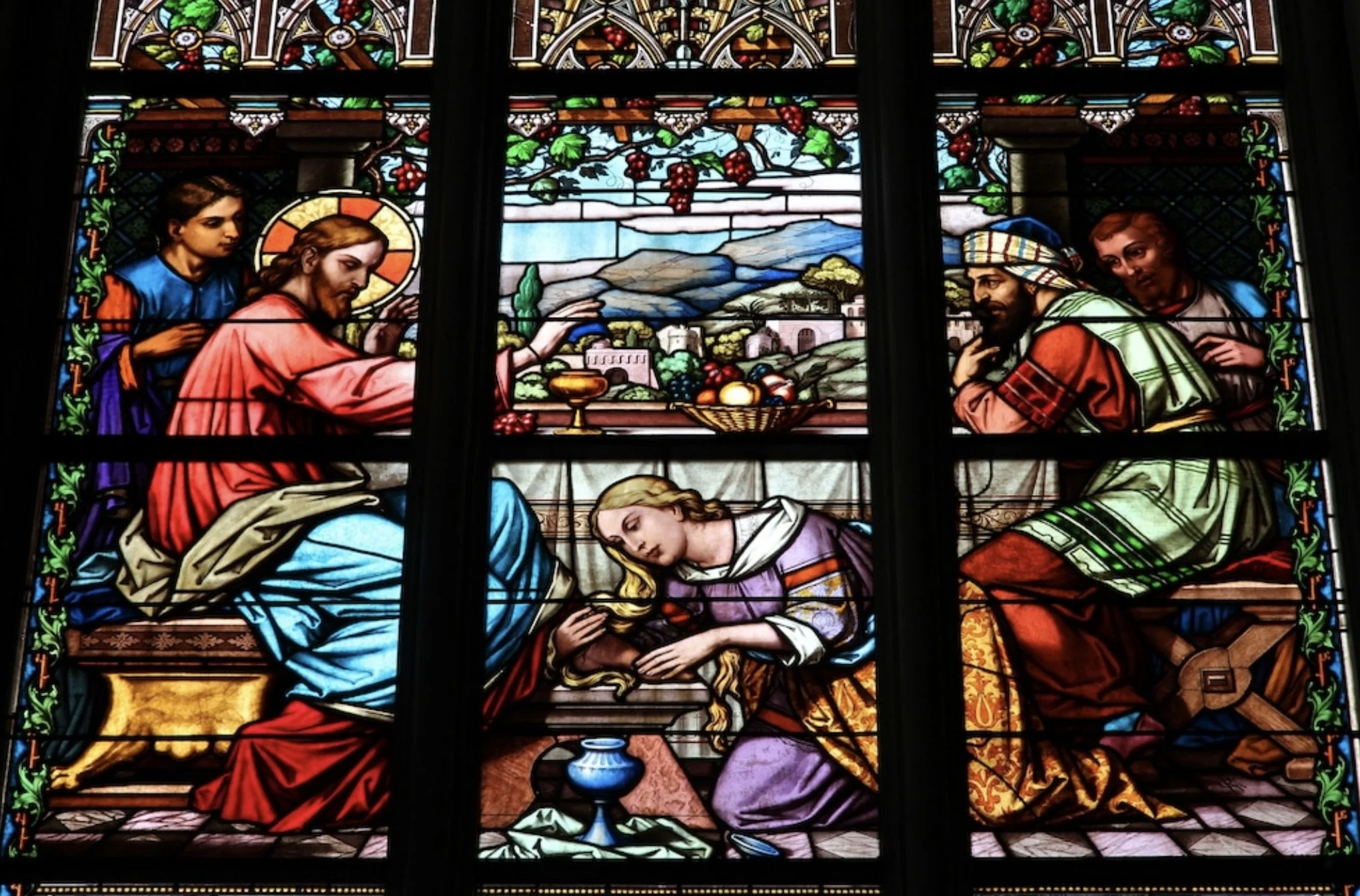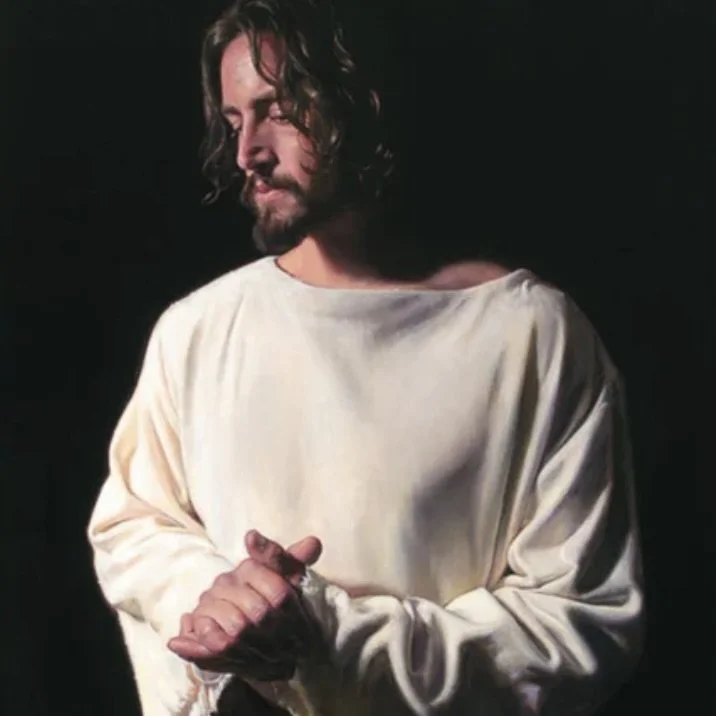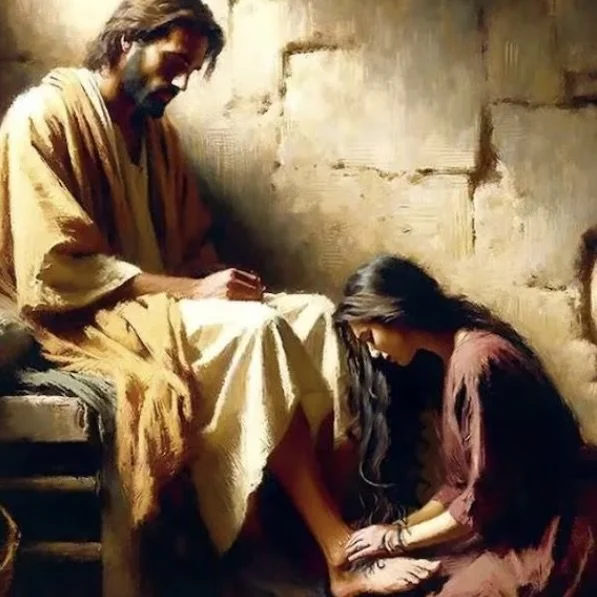For She Loved Much
Luke 7:37-50 tells the story of when the Savior was invited to eat with the Pharisees and they were all interrupted by a woman who came into the room and anointed the Savior’s feet with precious oil, her tears, and her hair. This display surprised those present because they did not understand why Jesus would allow this offering from a known sinner. The Savior then taught the parable of the two debtors which follows:
41 There was a certain creditor which had two debtors: the one owed five hundred pence, and the other fifty.
42 And when they had nothing to pay, he frankly forgave them both. Tell me therefore which of them will love him most?
43 Simon answered and said, I suppose that he, to whom he forgave most. And he said unto him, Thou hast rightly judged.
After the parable, the Savior pointed out that this woman had shown him greater love and appreciation than anyone else in the room. He then said, “Her sins, which are many, are forgiven; for she loved much: but to whom little is forgiven, the same loveth little.”
I have not really understood these scriptures before and in the past when I have read it, I have felt much like the older brother to the prodigal Son. Why would the Savior appreciate the love of someone who has sinned greatly more than those who had always strived to keep the commandments, even though imperfectly?
After studying Kristin Yee’s talk from our most recent General Conference, I have come to realize that I have always missed the point of the story and parable. This message is an example of the woman’s great love and appreciation for the Savior and his atonement and of how we are all in great debt to Him. The severity of sin is irrelevant to God. The Savior’s atonement has the power to erase any and all sin. That is His desire for each of us. Those where little is forgiven, are simply those who don’t bother to repent because they don’t understand the benefits. They loveth little because they haven’t felt the joy and the healing power of repentance in their lives yet.
Russel M. Nelson stated, “repentance is the pathway to purity, and purity brings power”.
I have personally learned that repentance has been my gateway to building a personal relationship with my Savior. The more I repent, the more I grow to love Him. I am convinced that this is why our prophet encourages us to repent daily. This practice has changed my life because it has given me daily access to the atoning power which goes way beyond my own strength and determination. It has made it possible for me to make real and lasting changes that have truly blessed me.
Relevant Quotes:
Kristin Yee:
“Just as the depth of my gratitude for the Savior grew…., so has my personal love and gratitude for my Savior intensified as I’ve sought to work with Him on my weaknesses and to be forgiven of my mistakes. I will forever be grateful to my Savior that I can change and be cleansed. He has my heart, and I hope to do whatever He would have me do and become.
(October 2024 “The Joy of Our Redemption”)
President Russel M. Nelson:
Repentance is the key to avoiding misery inflicted by traps of the adversary. The Lord does not expect perfection from us at this point in our eternal progression. But He does expect us to become increasingly pure. Daily repentance is the pathway to purity, and purity brings power. Personal purity can make us powerful tools in the hands of God.
(“We Can Do Better and Be Better,” Ensign or Liahona, May 2019,68)
The full address given by Kristin Yee, October 2024 “The Joy of Our Redemption”
https://www.churchofjesuschrist.org/study/general-conference/2024/10/32yee?lang=eng



